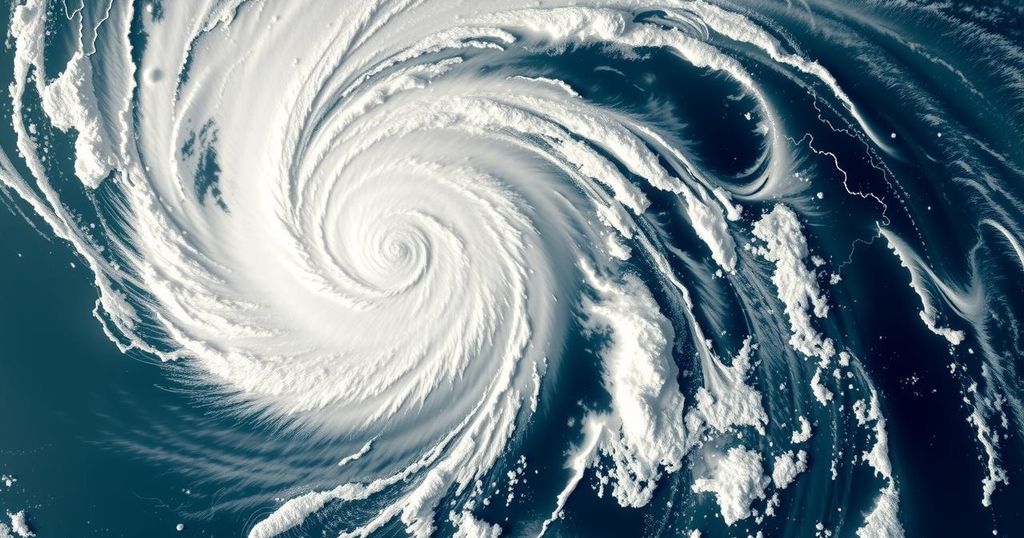Tropical Cyclone Chido: Impact and Response in Mozambique and Malawi
Tropical Cyclone Chido struck Mozambique on December 15, 2024, as a Category 4 cyclone, causing severe winds, heavy rainfall, and potential coastal flooding. The cyclone is expected to affect southern Malawi and dissipate near Zimbabwe, posing risks to over 2 million people across the affected areas. Quick response and monitoring by international partners are underway to ensure safety and recovery in these regions.
On December 15, 2024, Tropical Cyclone Chido made landfall in Mozambique as a Category 4 cyclone, approximately 35 to 40 kilometers south of Pemba in Cabo Delgado Province. The cyclone brought with it destructive winds reaching 260 km/h, intense rainfall of up to 250 mm within 24 hours, and posed a significant risk of coastal flooding across various affected provinces. As Chido progressed inland, preliminary reports indicated structural damages in residential areas, with infrastructure challenges such as loss of mobile connectivity and power outages observed in Pemba. It is anticipated that the remnants of Chido will impact southern Malawi with heavy rains (approximately 100 mm) and strong winds before dissipating near Zimbabwe by December 17, affecting over 1.7 million individuals in Mozambique and 440,000 in Malawi. The situation in neighbouring Comoros involved reported injuries and limited displacement due to floods, with further monitoring of the storm’s trajectory by regional agencies. Additionally, significant rainfall is forecasted for various regions, raising concerns for possible flash flooding and mudslides.
As of December 14, the cyclone’s development began in the southeast Indian Ocean, subsequently intensifying into a severe storm that passed alongside Madagascar. This situation underscores the persistent threat posed by climate-related weather events in this region, necessitating continuous monitoring and supportive measures by the United Nations and local governments to assure the safety of the affected populations. Residents are urged to stay informed through their national weather services as conditions evolve further.
The impact of natural disasters, such as Tropical Cyclone Chido, highlights the vulnerability of regions susceptible to severe weather patterns, especially in Southern Africa. Such occurrences not only challenge immediate infrastructure and public safety but also demand coordinated disaster response mechanisms. Previous cyclones in the region have often led to extensive damage, economic strain, and displacement, emphasizing the need for preparedness and rapid assessment capabilities in affected areas. This situation also brings to light the ongoing challenges of climate change and its effects on weather systems globally, particularly in tropical zones.
In summary, Tropical Cyclone Chido has resulted in significant hazards across Mozambique and Malawi, endangering millions while stressing the importance of disaster preparedness and response mechanisms in such vulnerable regions. Continuous monitoring and community support systems will be crucial in mitigating the adverse effects of the cyclone and ensuring recovery efforts are promptly implemented. The cooperation among national and international entities plays a vital role in addressing the immediate needs of affected populations as they navigate the aftermath of this severe weather event.
Original Source: reliefweb.int




Post Comment